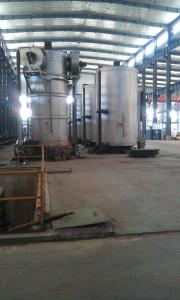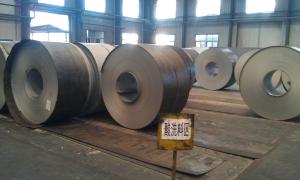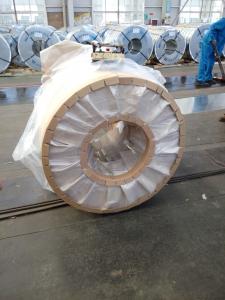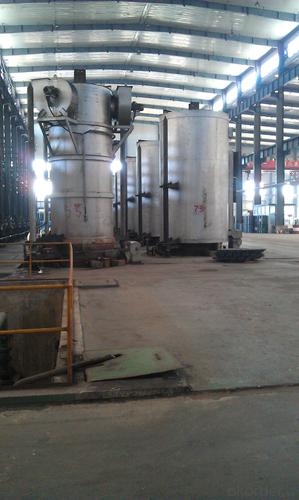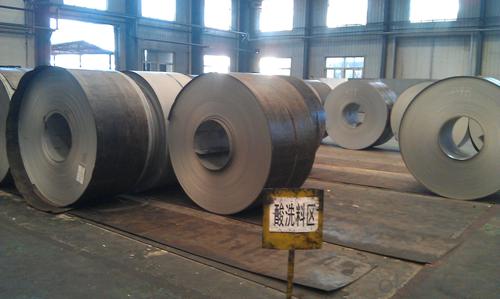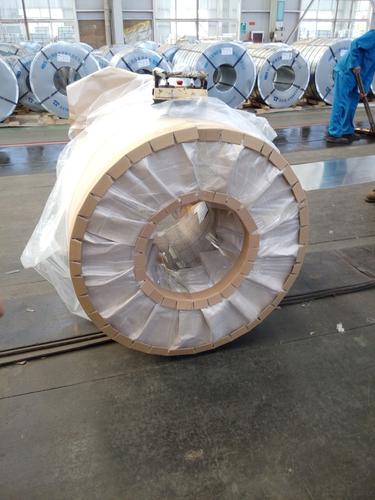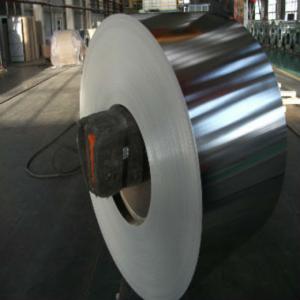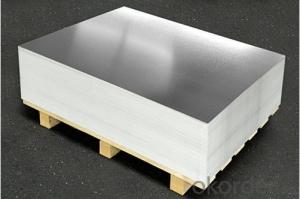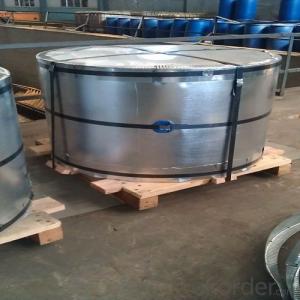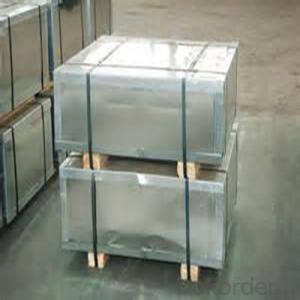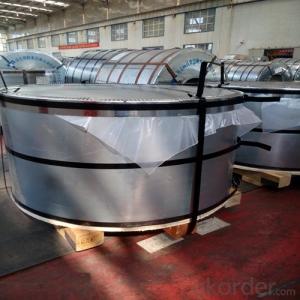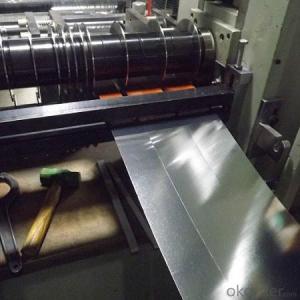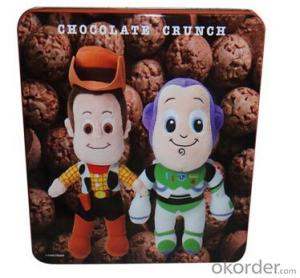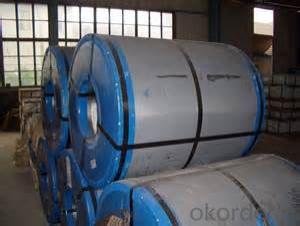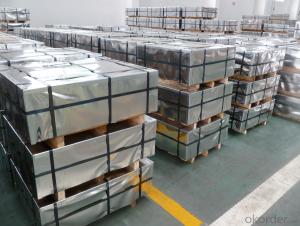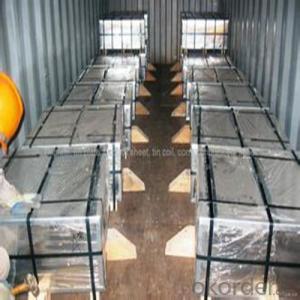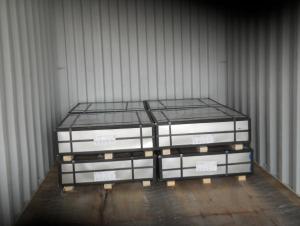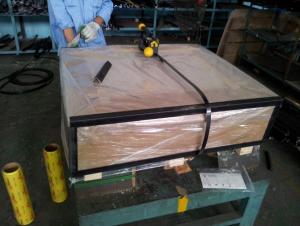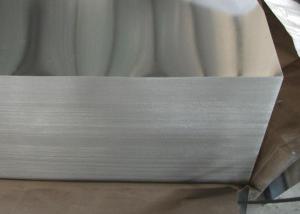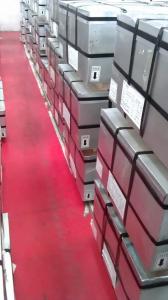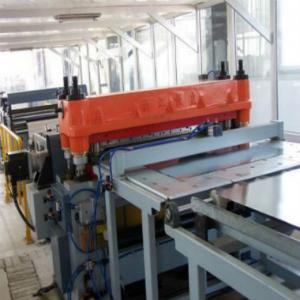Electrolytic Tinplate of Prime Quality for Useage of Chemical or Industrial Package
- Loading Port:
- Tianjin
- Payment Terms:
- TT OR LC
- Min Order Qty:
- 50 m.t.
- Supply Capability:
- 30000 m.t./month
OKorder Service Pledge
OKorder Financial Service
You Might Also Like
Specification
1.Structure of Electrolytic Tinplate of Prime Quality for Useage of Chemical or Industrial Package Description
Electrolytic Tinplate undoubtedly enjoys the pride of place as a packaging medium especially for food. It owes its unique position to its "nine layer sandwich structure", each of which contributes to its eminence as a packing material. The steel base of electrolytic tinplate provides the necessary strength and formability for can fabrication. The tin-iron alloy layer provides the bond between the steel and free tin layer. The free tin layer is not only responsible for the attractive bright finish and ease of solderability but is also non-toxic- a factor of vital importance in food packaging!
2.Main Features of the Electrolytic Tinplate of Prime Quality for Useage of Chemical or Industrial Package
Type MR – These base steels are low in residual elements and have good corrosion resistance properties. These steels are widely used in general applications
Type L – In this type the base steel has extremely low residual elements (Cu, Ni, Co and Mo). These steels have very good corrosion resistance to certain types of food products.
Type D – In D type aluminum killed base steel is used. These types are used in applications involving deep drawing or other types of severe forming that tend to give rise to Lueder’s lines.
3.Electrolytic Tinplate of Prime Quality for Useage of Chemical or Industrial Package Images
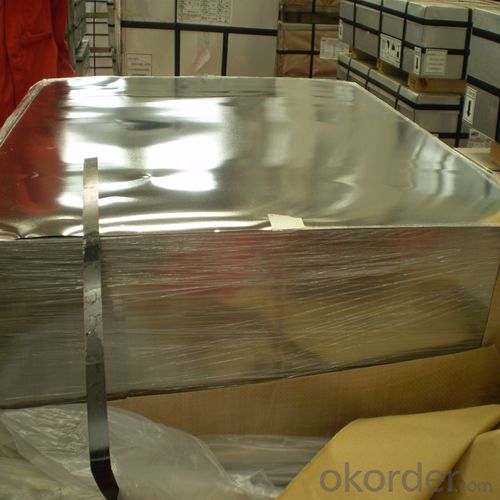
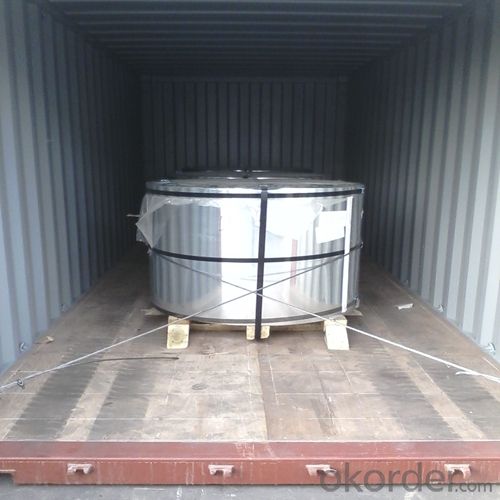
4.Electrolytic Tinplate of Prime Quality for Useage of Chemical or Industrial Package Specification
Specification of :
Standard: ISO 11949 -1995, GB/T2520-2000,JIS G3303,ASTM A623, BS EN 10202
Material: MR,SPCC
Thickness:0.15mm - 0.50mm
Width: 600mm -1150mm
Temper: T1-T5
Annealing: BA & CA
Coil Inner Diameter: 508mm
Weight: 6-10 tons/coil 1~1.7 tons/sheets bundle
Passivation:311
Oil: DOS
Surface: Finish,bright,stone,matte,silver
5.FAQ of Electrolytic Tinplate of Prime Quality for Useage of Chemical or Industrial Package
- What is tinning and how does it work?
Tinning is the process of thinly coating sheets of wrought iron or steel with tin, and the resulting product is known as tinplate. It is most often used to prevent rust.
- Do you only have prime quality tinplate?
We can supply both prime and second quality tinplate.
- Q: The difference between a matte tin plate and a bright tin plate
- Rough tinplate:After a slight rough treatment was to remove the original board plating processing gloss after use, through the soft melting process, which has a unique metallic luster, is a kind of printing, cans and other processing to generate abrasion and easy to use tinplate.
- Q: How does tinplate packaging contribute to product convenience for consumers?
- Tinplate packaging contributes to product convenience for consumers in several ways. Firstly, tinplate is lightweight yet durable, making it easy to handle and carry. This ensures that consumers can transport the products conveniently without worrying about breakage or leakage. Secondly, tinplate packaging often comes with easy-to-open lids or pull-tabs, allowing for quick and hassle-free access to the contents. This saves time and effort for consumers, especially when compared to other packaging materials that may require tools or additional steps to open. Additionally, tinplate packaging provides excellent protection against moisture, light, and air, preserving the quality and freshness of the product for a longer shelf life. This convenience is highly valued by consumers as it ensures that the product remains intact and enjoyable till its expiration date.
- Q: What are the different tinplate surface finishes?
- Some common tinplate surface finishes include bright finish, stone finish, and matte finish.
- Q: Cookies with tinplate packaging has what advantage
- Tinplate has obvious superiority compared with other packaging materials.
- Q: How does tinplate compare to plastic packaging in terms of sustainability?
- Tinplate packaging generally has a better environmental sustainability profile compared to plastic packaging. Tinplate is highly recyclable and often contains a significant percentage of recycled content. It has a longer lifespan and can be reused multiple times before recycling. On the other hand, plastic packaging is often made from fossil fuels, non-biodegradable, and has a limited recycling rate. Additionally, plastic waste can persist in the environment for hundreds of years, contributing to pollution and harm to wildlife. Therefore, tinplate packaging is considered a more sustainable option in terms of reducing waste and minimizing environmental impact.
- Q: What are the main challenges in tinplate labeling?
- The main challenges in tinplate labeling include ensuring the label adheres properly to the curved surface of the tinplate, maintaining label legibility and durability despite potential exposure to moisture, heat, or other harsh conditions, and avoiding label peeling or lifting due to the rigidity of the tinplate material. Additionally, achieving accurate and consistent label placement can be challenging due to the irregular shape and size variations of tinplate containers.
- Q: How does tinplate perform in terms of fire resistance?
- Tinplate performs well in terms of fire resistance due to its low flammability and high melting point, making it less prone to ignite or support combustion.
- Q: What's the advantage of metal containers in packing tea?
- Tin cans are internationally recognized food standards for iron packaging. Tinplate contains tin containing selenium, these are good for the human body. Print recognition is good. Good printing effect in tinplate, generally in high-grade tea can now use tin cans. It can damp and damp. Environmentally friendly, rugged and easy to carry.
- Q: How is tinplate different from other types of metal packaging?
- Tinplate is different from other types of metal packaging because it is made from a thin layer of tin-coated steel, offering superior corrosion resistance and protection to the packaged product. This makes tinplate ideal for food and beverage packaging as it ensures the preservation of taste, freshness, and quality. Additionally, tinplate is lightweight, durable, and easily recyclable, making it an environmentally friendly option compared to other metal packaging materials.
- Q: How does tinplate perform in terms of light blocking properties?
- Tinplate is known to provide excellent light blocking properties due to its opaque and reflective nature, making it an effective choice for packaging materials to prevent light exposure and preserve the quality of light-sensitive products.
Send your message to us
Electrolytic Tinplate of Prime Quality for Useage of Chemical or Industrial Package
- Loading Port:
- Tianjin
- Payment Terms:
- TT OR LC
- Min Order Qty:
- 50 m.t.
- Supply Capability:
- 30000 m.t./month
OKorder Service Pledge
OKorder Financial Service
Similar products
Hot products
Hot Searches
Related keywords
